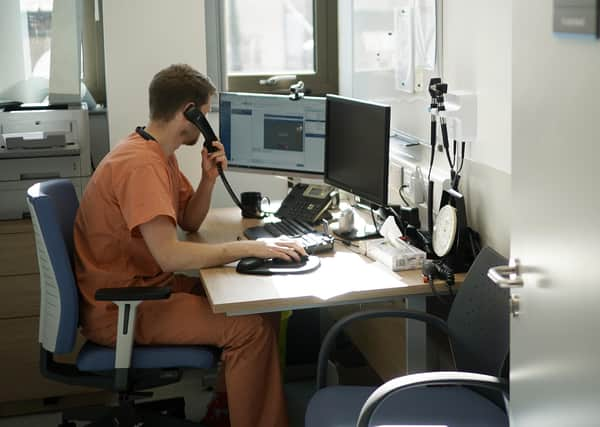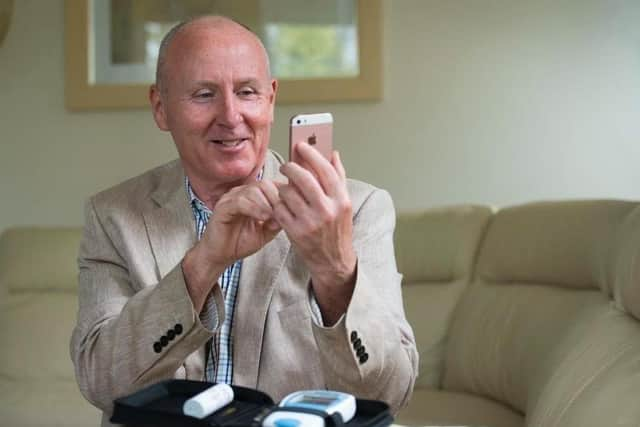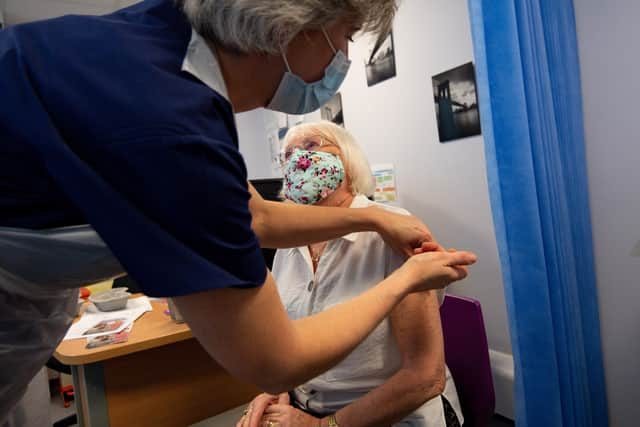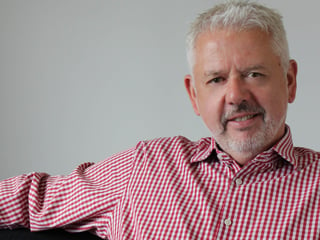Humble landline has vital role in digital revolution of NHS - Bryn Sage


From videoconferencing in general practice – “the doctor will Zoom you now” – to the home monitoring of people living with long-term conditions, the world of healthcare is going through a digital revolution.
It is not so long ago that we were suspicious of online shopping. The idea of logging on to buy a book from a distant warehouse seemed fraught with difficulties. Now it is virtually second nature.
Advertisement
Hide AdAdvertisement
Hide AdSimilarly, the thought of looking after your personal finances online seemed an open invitation to fraudsters. Today 25 million Britons are banking on their mobiles.


The same shift is taking place in the NHS. Barely a quarter of GP consultations are now taking place face to face. In the coming year, we will see a similar transformation in outpatient appointments. The medical establishment is clicking in agreement: the use of technology is one of the few positives to emerge from the Covid-19 crisis.
What about the patients? The first lesson is that technology-enabled care is not second best. Actually, it frees up clinicians to spend more time with people with the greatest need. Remote monitoring allows doctors and nurses to prioritise patients according to requirements. The rest can carry on with their lives, assured they are under the watchful eye of the NHS in the comfort of their own home. That is the best of both worlds.
The second lesson is that no patient should be left behind in the rush to embrace the new. At its most effective, digital health doesn’t rely on the latest smartphone or expensive watch. The most powerful tool is actually the humble landline telephone. It bridges the digital divide: 93 per cent of those aged 75 and above own a landline. Most patients are happy using it for consultation. As Royal College of GPs chair Martin Marshall said: “Who would have thought this 150-year-old technology would still be just as useful today?”
Advertisement
Hide AdAdvertisement
Hide Ad

The third lesson is beware of Greeks bearing gifts. The NHS is in the midst of what has been described as the biggest digital transformation project in the world. Speculators are looking to enter the multi-billion pound market for UK healthcare technology, often offering their services free.
Generally speaking, if something looks too good to be true, it usually is. Buyers must beware of hidden costs and complexities later on, especially when taxpayers’ money is at stake.
The fourth lesson is for new entrants in the sector. In our experience, the most effective digital services for the NHS are developed through a process of constant iteration. Suppliers should be willing and able to offer continual improvements to respond to local and regional NHS requirements and meet changing needs. A flexible approach to conceptualisation, development and evaluation is essential as is speed of delivery. We call this “agile by design”.
The fifth and final lesson concerns our economic prospects as a region. Like many parts of the North, Yorkshire has been hit hard by the lockdowns with deep job cuts across the retail, hospitality and manufacturing sectors. To offset the pain, the Government has an opportunity to boost growth sectors.
Advertisement
Hide AdAdvertisement
Hide AdYorkshire has a world-class concentration of skills and expertise in health technology across the public and private realms. Our region is home to two of the UK’s biggest GP software systems, a leading Covid-19 antibody test provider and a critical chemical supplier to the Pfizer vaccine. Post-Brexit, far-sighted policies could boost high-value employment and establish Yorkshire at the heart of a new global industry.
To sum up, necessity is driving the digital transformation of the NHS but care must be taken to stop patients being left behind. Technology is improving all the time, so NHS commissioners must be careful about what they are signing up for.
Our sector offers some light in a darkening economic landscape. Over the last 12 months, we have grown substantially: 20 million people across the UK can now access the latest technologies developed by Inhealthcare in partnership in the NHS. Widespread adoption is coming – and everyone should benefit.
Bryn Sage is chief executive of Inhealthcare, part of Harrogate-based Intechnology plc.
Advertisement
Hide AdAdvertisement
Hide AdSupport The Yorkshire Post and become a subscriber today. Your subscription will help us to continue to bring quality news to the people of Yorkshire. In return, you’ll see fewer ads on site, get free access to our app and receive exclusive members-only offers. Click here to subscribe.
